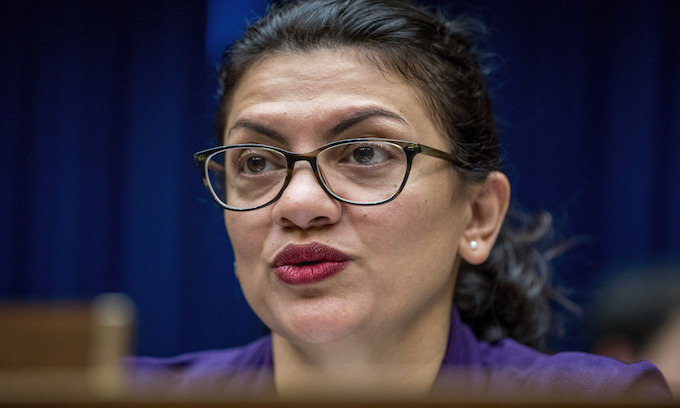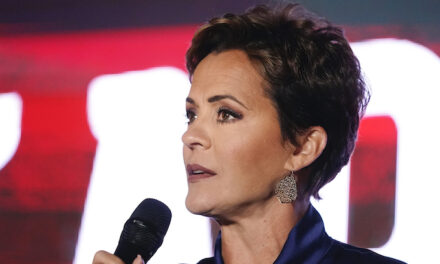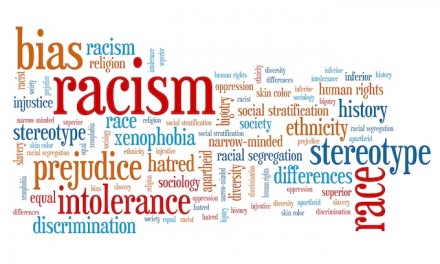On the heels of Congress’ approval of a $1.9-trillion plan to address the fallout from COVID-19, U.S. Rep. Rashida Tlaib on Tuesday reintroduced legislation that, if passed, would provide monthly payments of $2,000 to every American during the crisis.
“Our residents shouldn’t have to play a waiting game on the question of their survival,” said Tlaib, D-Detroit. “If the last year has shown us anything, it’s that our families are in dire need.”
The measure, which Tlaib calls the Automatic Boost to Communities (or ABC) Act and is cosponsored by Rep. Pramila Jayapal, D-Washington State, is a longshot to say the least. Democrats hold only a slim majority in the House, and the Senate, where a 60-vote threshold is needed to pass most bills, is evenly divided at 50-50.
But the legislation may continue a developing discussion in Congress over the possibility of someday authorizing direct, recurring payments such as those proposed in last year’s presidential campaign by current New York City mayoral candidate Andrew Yang.
On Tuesday, Tlaib said she was encouraged when other Democrats during last year’s debates over COVID relief checks began to discuss the possibility of recurring payments during the pandemic and its aftermath, though they broke down over when they would be triggered and their amount.
“I would love to have that conversation on what that looks like,” she said.
Specifically, the ABC Act would call for every American, including non-citizens in the country for at least three months, to receive, through direct bank deposits or prepaid debit cards, $2,000 a month for as long as the pandemic is considered a national emergency. For a year following that, payments of $1,000 would continue each month.
In order to pay for it — and get around rules regarding how congressional analysts calculate the nation’s debt — the legislation calls for the U.S. Mint to create two trillion-dollar coins that would then be purchased by the Federal Reserve, which helps manage the nation’s money supply. The money would then be moved into the U.S. Treasury to cover the cost of the payments — with more coins being minted if needed.
Tlaib, who represents a congressional district with one of the highest percentage of impoverished constituents in the nation, said it would help families desperate to find work and pay bills because of the economic slowdown and provide a needed injection of cash to small businesses everywhere.
The bill also calls for the creation of an Emergency Responder Corps to contact at-risk and vulnerable communities to make sure they get access to the funds.
The COVID relief bill passed by Congress recently provided checks of $1,400 to many Americans but it phased out as an individual’s or family’s income got higher. And while many progressives may cheer the idea of recurring payments, it’s far from clear that Democrats representing more moderate constituencies would embrace it.
One argument that has been raised against government injecting cash directly into the economy has been that it could trigger higher levels of inflation. If the government were to simply print money and give it out, that argument goes, prices and wages would increase, lowering the real value of the currency.
But Tlaib said Federal Reserve Chairman Jerome Powell has said that rampant inflation is not a particular worry with the economy still hurting from the pandemic and the associated slowdowns. Still, Powell’s comments were given around a much-less dramatic proposal than Tlaib’s.
This article originally appeared on Detroit Free Press: Rashida Tlaib wants everyone, including non-citizens, to get $2,000 a month starting now
___
(c)2021 the Detroit Free Press
Visit the Detroit Free Press at www.freep.com
Distributed by Tribune Content Agency, LLC.
—-
This content is published through a licensing agreement with Acquire Media using its NewsEdge technology.



















Guaranteed income gives us guaranteed Venezuela, brought to you by communists like Rashida Tlaib. No one has to work anymore, because Washington DC, will give us everything for “free”.
“Washington DC, will give us everything for “free”
“everything”
1 cup of cornmeal,
1 cup of water,
2 cornmeal sacs to make cloths,
1 old tire to make shoes,
1 Job that you have to work from daylight until dark in order for you to be given the free “everything”
All jobs pay $1.00 per hour and the government tax rate is $0.87 per dollar.
Democrats are sure a bunch of dumb @#$^&*!!!!
Isn’t this strategy of the “dem-unist-izs” familiar sounding? . . .mmm. . .seems to me that the evil empire of the Soviet Union was destroyed from the combined policies of Nixon, Reagan, and Bush 1 by bankrupting that government, causing them to collapse from within because their economy could not support a military buildup competing with us. In that example, the United States liberated BILLIONS of enslaved people from behind the iron curtain who were suffering from a system that today’s ameriKan democrats want to impose on us. Now this America hating demonrat, along side her other marxists is using the bribery of free stuff to a generation of dumbed down voters to do exactly that. Where’s the money coming from? How does a totalitarian government fund itself? Covid exaggerated ploys to create mail in voting fraud, “man made” climate change, and free candy to all the children is what we are seeing.
WHY should illegal invaders, EVER GET PAID BY WE americans…
The Raghead Muslim Rashida Tlaib and the Socialist Democrat Party wants to destroy our economy so that everybody is dependant on the Socialist Democrat Party.
The “Socialist Democrat Party State” political officers and Gestapo are just getting started.
You will obey, be loyal and support the “Socialist Democrat Party State” or you will be classified as
“Enemies of the State”.
There are two types of Islam believers.
There are the Peaceful, ‘live and let live’, Muslims
Then there are the LOW IQ MOSLEMS that have been INGRAINED WITH HATRED FOR EVERYTHING THAT IS NOT THEM.
This braindead, LOW IQ HATER is of the latter variety.
THe peaceful ones, don’t care when the global caliphate is made. THE MILITANT ONES want it now
Per the constitution only citizens are entitled to Privileges and Responsibilities. Illegals are not citizens ,so they are not entitled to anything. Send Muslim Rashida Tlaib back to Palestine or where she came from.
and any democrat/RINO that HATES AMERICA SO BADLY, HAVE THE FREEDOM to Renounce their Citizenship and go away.
TELL That to congress. SINCE FOR DECADES, they’ve been giving damn near EVERY RIGHT and privileges citizens should have, to illegal aliens.. TO THE POINT THEY SEEM TO HAVE MORE RIGHTS than we citizens do.
So just exactly who pays for this? OHHHHHHHHHHHHH yeah! WE DO! Can’t even imagine how high the taxes would be on this one. She has absolutely lost her mind! This is the start of Communism, a convenient virus leads us by our masks, hand feeding us until the money runs out (the virus never will) or they don’t have to anymore and then your really screwed when there is no money left to feed you and then you become VENEZUELA. The left has absolutely no solutions just problems.
Democrats are dumb, hateful, insane and with a death wish.
Why would any sane person vote for a corrupt, demented, babbling, Biden for a puppet president and the Comrade Camella Harris?? 🙁 🙁 🙁
Just look at the damage that this deadly dual have inflicted on our country already, in less than 4 months.
THAT’s been their goal.. TO RUIN this nation imo.
NO ONE voted for that duo except the copy machine and it voted millions of times. We (and Donald Trump) watched the country be stolen right out from under our noses in amazement. No one has been arrested (or shot) for it yet. Why not???
BECAUSE those in charge of our “no longer in place” justice system, are FULLY SUPPORTIVE of this outright theft of our election… THEY HATED trump, just as much as the politicians..
As long as she pays out of her own pocket the first 12 million per day…..
Multiplied by the democrats and RINOs that voter for this garbage……
They give us 2k a month…then tax is at 75%!!!!!
Rashida should donate her salary, all of her investments that generate income to this project and lead by example to have all her fellow liberals follow suit.
Leave my money alone and stop bailing out states who cannot balance their own books.
Start with all the hollywood elites and overpaid hacks in the NFL/NBA/MLB etc..
Scariest words: I’m from the government and I’m here to help you.
Who, exactly, does she believe will pay for this ‘free money’? It is an extremely high priced loan. It would cost each citizen thousands of dollars in taxes and increased costs of goods for years to come.
I have an idea…Iet’s get the country back in business again without government intervention. Fat chance that will happen now that the Democrats control our government.
How does a dimwit like this keep getting elected? Because there are even dimmer wits out there voting.
This is the product of our failed school system perpetrating the “dumbing of America “ and the “gimme” society.
Sorry to say, but I had to get this woman’s picture off my screen as soon as it appeared—-the edges of the screen were starting to melt.
CAUSE of rampant fraud in Michigan!! AND the import of thousands of mudslimes, who got given the ability to vote, EVEN THOUGH MOST are not citizens.
not to mention the THOUSANDS of dead people… and now it’s being uncovered that 10 of thousands of people never even existed … or the address’s. Which explains why there was stacks of “mail in ballots” a foot high that had absolutely …NO… creases in them! The SOS here in Michigan is about to have her treasonous house of cards blown clean up… I’m praying for jail time.
I loved watching Steve Crowder and co, do his drive by’s of the addresses of so-called voters in a # of states.. AND SHOWING The video footage of empty lots, bridge overpasses, empty warehouses and the like…
How about opening up the country again and getting all of these deadbeats off of the government’s payroll which would force them to work or starve. Everywhere I look there are help wanted signs so obviously there are jobs available.
How about shutting the government down and get those deadbeat idiots off our backs. Till then, “wah, wah, wah”.
Id be firmly ok, with ending EVERY DAMN entitlement program.. IMMEDIATELY.
I want Tlaib and Jayaram out any and all of our government right now. What are they going to mint their trillion dollar coins from? Pixie dust? Do these two even enough sense to know to breath?!?!
Jayaram Paypal protests the governing body she is a member of.
Unfortunately breathing is autonomous.. YOu don’t need sense or brains to do it.
“…..Democrats during last year’s debates over COVID relief checks began to discuss the possibility of recurring payments during the pandemic AND IT’S AFTERMATH…”
“I would love to have that conversation on what that looks like,” she said.
So, what stopped you? What’s stopping you now? Lose your O’bamaphone?
If this happens I’m quitting my job. I’d make a lot more with this money than I do at my full time job!!!!
not if you’re a white man.
Since the US Treasury is obviously full to the point of nearly overflowing, here’s an idea that solves this and another current problem; Illegal immigration. Send $2000 to all of the poor people in the world then, they won’t have to illegaly come here to get it. BOOM, no more overflowing Treasury, no more need to sneak in! Thoughts?
Sounds great 2Conservative, Can we start draining your bank account first?
Here’s another thought – Charge the illegal aliens $2000 for entry. Why let the coyotes make that money? Divvy the money up to the citizens of the country. Heck, I wouldn’t put up with jackazzez stealing my house and throwing me out, BUT if jack wants to purchase it… put up or shut up hombre!
How’s about BILL THEIR HOME COUNTRY, for sending them here.. SEize the money from their companies in this nation, if need be.
make sure the bills are covered in CHINA virus dust before they’re sent.
This woman is exactly why there should be an I Q test required for all political candidates.
TERM LIMITS. It’s time has come. Get rid of the parasites in the government first then work on the parasites in the citizenry.